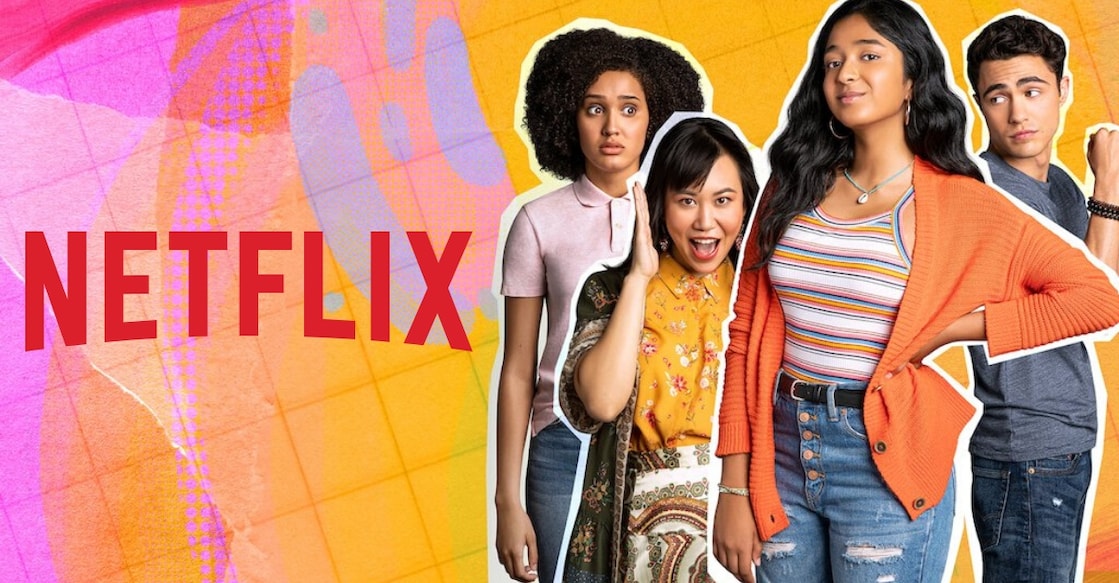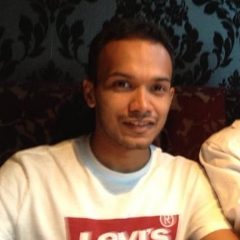Never Have I Ever: Laudable effort to buoy Asian representation, but stereotypes loom

Mail This Article
For many first-generation Indian Americans who grew up in the 90s, Never Have I Ever, the new show on Netflix that is now all the buzz on the internet, invokes vivid memories.
Memories of their upbringing, the overbearing struggle to remain rooted in their culture, and the ache and longing to break free and subscribe to a brave new world.
Created by Mindy Kaling and Lang Fisher, Never Have I Ever revolves around an Indian American teenager, Devi Vishwakumar (newcomer Maitreyi Ramakrishnan) as she learns to cope with her father's untimely death while juggling the many priorities of high school life – one of which is to stay cool.
Since its release on April 27, this coming of age comedy-drama has won enormous praise for its efforts to underscore South Asian representation in Hollywood.

Actress Poorna Jagannathan, who plays Nalini, Devi's controlling mother, recalls the “special feeling” of shooting the episodes in a Washington Post article.
“We're in Hollywood! It's Netflix!” she says. “And it's all brown people.”
Indeed, Never Have I Ever is a watershed moment in entertainment, no doubt. Some have even drawn parallels with Black Panther and Crazy Rich Asians.
For Anamika Trivedi, an Indian American who grew up in New York in the 90s, Never Have I Ever has hit home hard. A devout fan of the show, Trivedi tells Onmanorama that “90s television meant Friends, Buffy the Vampire Slayer, and the occasional Seinfeld.”

She was not allowed to watch anything else. Especially those shows that which her parents deemed, would 'American-ize' her.
While young Trivedi adorned the characters of Rachel Green (played by Jennifer Aniston in Friends), Buffy Summers (Sarah Michelle Gellar in Buffy) and Elaine Benes (Julia Louis-Dreyfus in Seinfeld), they often felt like 'outsiders' to her – like neighbours you would say hello to, but dare not invite for tea.
“All the Asian characters I saw then were sidekicks to the main actor. Honestly, there was no one to look up to on-screen that resembled, even remotely, me or us. Though I did not felt it as much then, it dawned on me as I got older,” Trivedi said.
She is not alone. Many Asian Americans who grew up in the 90s felt this way – that feeling of being so close, yet disconnected. For Trivedi and many like her, Never Have I Ever then is justice!
This does not come as a big surprise though. Mindy Kaling's recent few efforts have also been in the same vein – to see Asian representation flourish in the US entertainment scene.

The Mindy Project, her previous effort, is considered a pioneering work in this regard.
While Never Have I Ever has had the 90s generation quite enthralled, it was not taken as well by the youngsters who see it as one of the many naive shows that, despite its good intentions, add more into how Asian Americans are caricatured in the industry – rebellious girls, nerdy boys, strict mothers and goofy dads.
In the show, Nalini is seen as a tyrant-mom who commands her daughter into good, but unadventurous paths. Devi is seen as a rebellious daughter, too smart for their cultural roots, and who desperately aims to be “cool”. Kamala (Devi's aunt, played by Richa Moorjani) is portrayed as an “independent” woman who can't refuse her parents wishes on whom to marry.
That's not all, desi communities in the show are used solely as avenues for gossip and laughs.
In a study conducted by Loyola University, Chicago, it was found that people no longer associate overt stereotypes – the savage foreigner, heavily accented new immigrant, and cheap business owner – with Asian Americans.

Rather, most now considered this group to be assimilated and even “American-ized”.
However, Never Have I Ever does navigate clear of some stereotypical representations which usually goes unnoticed by most.
In the show, the teenager Devi is not seen hanging out with her fellow Indians at school, as it is depicted (wrongly) in most works, even Harry Potter. Instead, she has formed a friendship trio with Eleanor (Ramona Young) and Fabiola (Lee Rodriguez). A multi-cultural and multi-racial gang.

With this, Never Have I Ever depicts a true high school reality and normalizes diversity.
The show fails, when it, in an effort to be more explicit with Asian representation, goes overboard and does stuff considered outlandish now by even 'regular Asians'.
Like having Devi's geometry book next to portraits of several Hindu gods. That, and the accents. Many, including noted actress Lisa Ray, has pointed it out on Twitter fuelling a war of words.

Never Have I Ever, despite laying the foundation to gracefully explain some of the nuances of our tradition, panders to what non-desi people expect to see, and thereby reinforces known stereotypes.
In short, Mindy has yet again missed a great opportunity to take desi-culture past the foyers of cinema and into the halls of fame.


